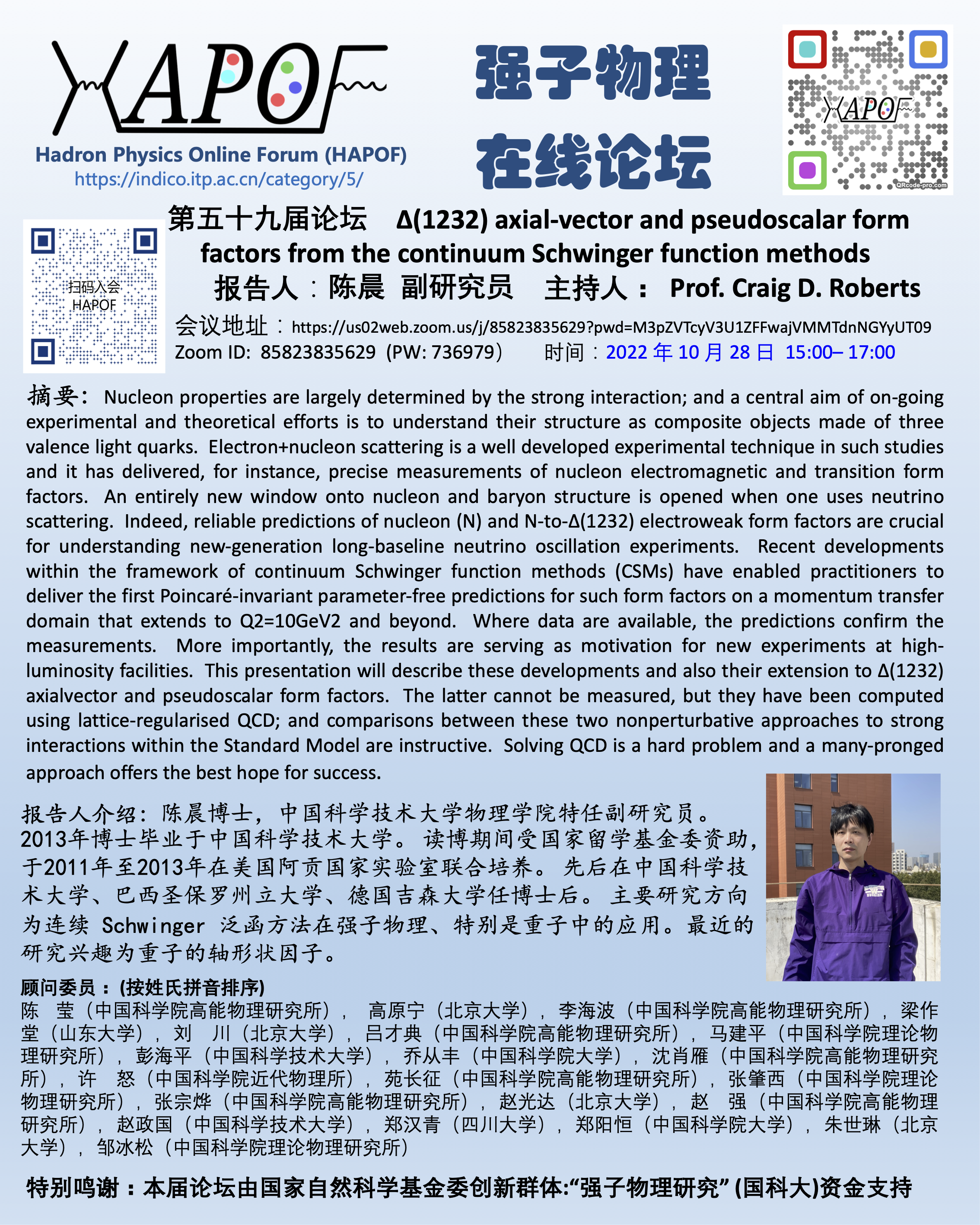强子物理在线论坛 Hadron Physics Online Forum (HAPOF)
第五十九届HAPOF论坛, ∆(1232) axial-vector and pseudoscalar form factors from the continuum Schwinger function methods, 陈晨 博士,2022年10月28日
→
Asia/Shanghai
Description
报告人:陈晨 副研究员 (中国科学技术大学) 报告时间:2022年10月28日 15:00 - 17:00 (Beijing time) Zoom link (Zoom ID: 858 2383 5629 password: 736979) 摘要: Nucleon properties are largely determined by the strong interaction; and a central aim of on-going experimental and theoretical efforts is to understand their structure as composite objects made of three valence light quarks. Electron+nucleon scattering is a well developed experimental technique in such studies and it has delivered, for instance, precise measurements of nucleon electromagnetic and transition form factors. An entirely new window onto nucleon and baryon structure is opened when one uses neutrino scattering. Indeed, reliable predictions of nucleon (N) and N-to-∆(1232) electroweak form factors are crucial for understanding new-generation long-baseline neutrino oscillation experiments. Recent developments within the framework of continuum Schwinger function methods (CSMs) have enabled practitioners to deliver the first Poincaré-invariant parameter-free predictions for such form factors on a momentum transfer domain that extends to Q2=10GeV2 and beyond. Where data are available, the predictions confirm the measurements. More importantly, the results are serving as motivation for new experiments at high-luminosity facilities. This presentation will describe these developments and also their extension to ∆(1232) axialvector and pseudoscalar form factors. The latter cannot be measured, but they have been computed using lattice-regularised QCD; and comparisons between these two nonperturbative approaches to strong interactions within the Standard Model are instructive. Solving QCD is a hard problem and a many-pronged approach offers the best hope for success. 报告人简介: 陈晨博士,中国科学技术大学物理学院特任副研究员。 2013年博士毕业于中国科学技术大学。 读博期间受国家留学基金委资助,于2011年至2013年在美国阿贡国家实验室联合培养。 先后在中国科学技术大学、巴西圣保罗州立大学、德国吉森大学任博士后。 主要研究方向为连续 Schwinger 泛函方法在强子物理、特别是重子中的应用。最近的研究兴趣为重子的轴形状因子。 特别鸣谢:本届论坛由国家自然科学基金委创新群体:“强子物理研究”(国科大)资金支持
